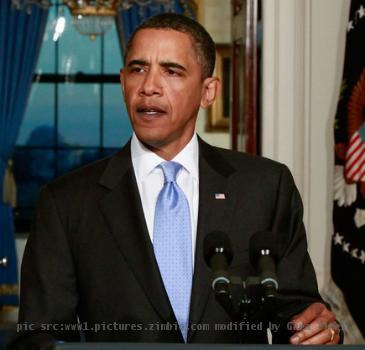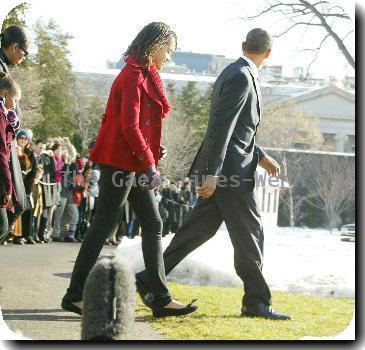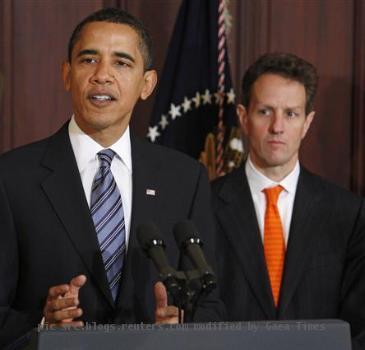Administration declines to cite China as currency manipulator but says future actions critical
By Martin Crutsinger, APThursday, July 8, 2010
Administration declines to cite China on currency
WASHINGTON — The Obama administration announced Thursday that it has declined to cite China for manipulating its currency to gain unfair trade advantages against the United States.
The administration did conclude that the Chinese currency is undervalued against the dollar, in a report that it is required to send Congress.
But the report noted that China on June 19 announced it was introducing more flexibility into its currency system. After showing no movement against the dollar since mid-2008, the Chinese renminbi, also called the yuan, has risen about 0.8 percent against the dollar since Beijing’s June announcement.
In a statement, Treasury Secretary Timothy Geithner said the administration will be watching the currency changes closely in coming months. The administration is required to issue the currency report every six months.
“What matters is how far and how fast the renminbi appreciates,” Geithner said. “We will closely and regularly monitor the appreciation of the renminbi and will continue to work towards expanded U.S. export opportunities in China that support employment in the United States.”
American manufacturers say the Chinese currency is undervalued by as much as 40 percent. They contend that this undervaluation is a key reason for America’s huge trade deficit with China, the largest with any country. It is also a factor in the loss of millions of American manufacturing jobs over the past decade, they say.
Scott Paul, the executive director of the Alliance for American Manufacturing, said that the Obama administration will never achieve its goal of doubling U.S. exports unless Washington takes more forceful action against China.
“It’s clear that China’s announcement last month was nothing more than a charade, but the administration seems to have fallen for this rather unbelievable promise,” Paul said. “Congress must pass strong legislation to address China’s currency manipulation.”
Eswar Prasad, an economics professor at Cornell University who specializes in trade, said that with U.S. unemployment remaining high in an election year, Congress will be unable to resist the temptation to boost tariffs on Chinese goods unless Beijing allows more revaluation of its currency.
A finding by the administration that China was manipulating its currency would have triggered negotiations between the two countries that could have eventually led to the imposition of higher tariffs on Chinese imports.
A stronger Chinese currency would make U.S. goods cheaper in China and would make Chinese goods more expensive for American consumers. That would boost U.S. exports to China and help dampen demand among American consumers for Chinese products.
However, many private economists argue that there are a variety of reasons for America’s huge trade deficit with China. A change in the currency values would have only limited impact on the deficit, they say.
The new currency report had been scheduled for release in mid-April. But Geithner delayed its release until after last month’s Group of 20 conference of major economic powers.
Geithner’s action was widely seen as an effort to give China more time to resume allowing its currency to rise in value against the dollar without seeming to bow to outside pressure.
President Barack Obama, who met with Chinese President Hu Jintao in Toronto, later told reporters that the “proof of the pudding is going to be in the eating” on China’s new pledge of a more flexible currency.
A group of senators is pushing legislation to impose stiff penalties on Chinese imports if China does not move more quickly to revalue its currency.
Sen. Charles Schumer (D-N.Y.), one of China’s leading critics in Congress, has said he plans to push the measure to a vote at the first available opportunity once Congress returns next week from its weeklong Independence Day recess.
Tags: Asia, Barack Obama, Beijing, China, East Asia, Greater China, Hu Jintao, International Trade, Manufacturing Sector Performance, North America, United States, Washington




